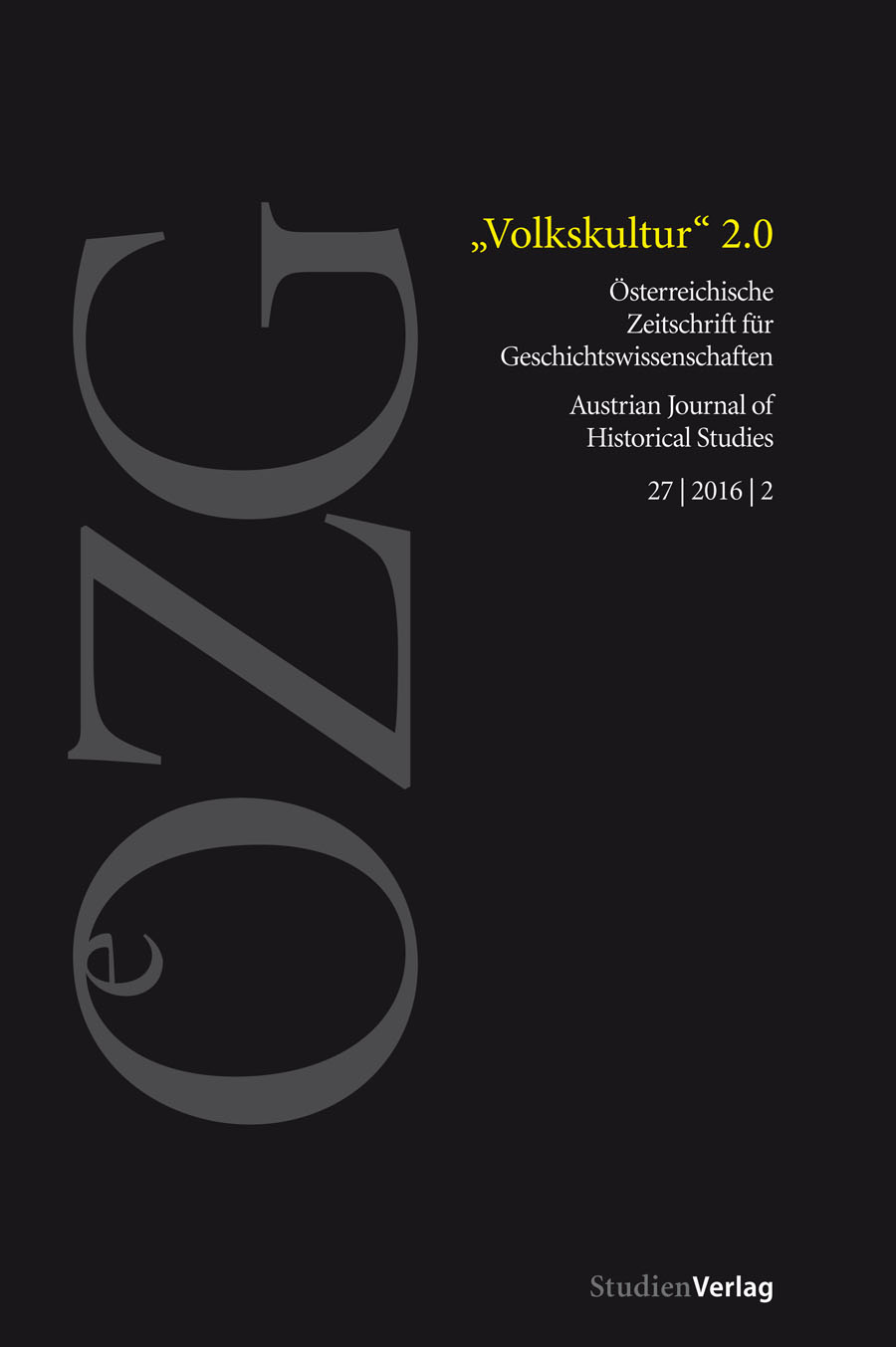‚Volkskultur‘ in der spätmodernen Welt
‚Das Bayerische‘ als ethnokulturelles Dispositiv
DOI:
https://doi.org/10.25365/oezg-2016-27-2-6Schlagworte:
dispositive, ‘the Bavarian’, folk culture, postmodernity, aestheticsAbstract
Since the year 2000, dealing with ‘the Bavarian’ has become more popular than ever before. While the world is connected via businesses, family relations and digital networks and separated because of wars and conflicts at the same time, ethnocultural coded objects and practices supposed to be typical, local or traditional attract global attention. ‘Folk culture’ seems to hit the aesthetics of the 21st century. With Michel Foucault ‘the Bavarian’ may be understood as a dispositive consisting of institutions, people, relations and even breaks. ‘The Bavarian’ – whatever that means – is not and has never been static. Furthermore ‘the Bavarian’ functions as a kind of cloud. Conceived as a process its various meanings are permanently negotiated by everyone feeling called to comment on this matter. During the last 15 years more and more people from all over the world have arrived in Bavaria and the metropolitan region of its capital Munich for private or professional reasons, as refugees or high skilled migrants. The effect is an increasing diversity of society in the cities as well as in less urbanized parts of the country. In a postmodern sense, practices, materials, symbols and performances imagined as characteristic components of ‘the Bavarian’ are to be considered as possibilities of participation.


